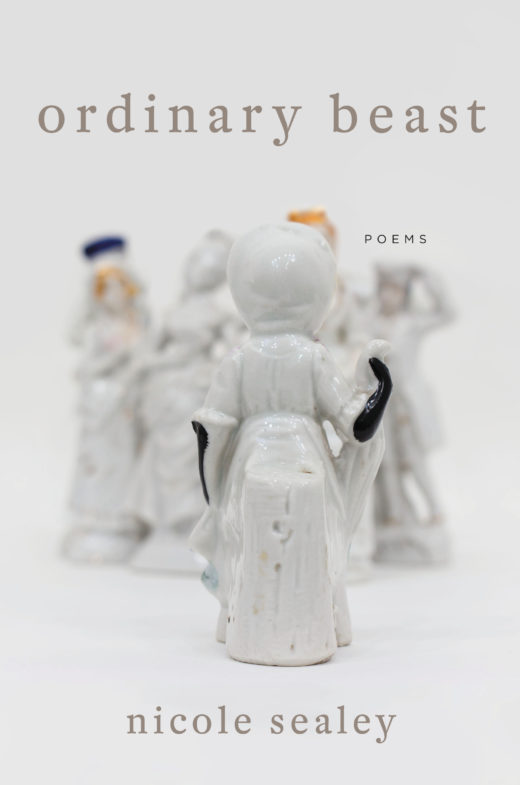- The Defiant Infanta: a review of Chantel Acevedo’s The Living Infinite

- The Black Aesthetic at the Living Room Light Exchange
A Survivor’s Prayer: A Review of Ordinary Beast by Nicole Sealey
Candice Mays

Nicole Sealey’s Ordinary Beast emotionally builds throughout the collection from trauma, to love, ultimately breaching into the last frontier of hope. Her work ambitiously unveils the reality of being Black from the sightlines of narrators stripped of their humanity. Each of the collection’s three nuanced sections covers a different aspect of the human spirit’s perseverance in the face of racism’s devastation.
Orange flares fire at once in the collection’s leading poem, “Medical History.” A list of countless diseases and ailments running through the narrator’s family tree leaves her “spooked by wind.” Liable to drop dead from anything at any moment demands the superhuman powers reflected in “Hysterical Strength.” Spotlighting the black community’s will to live by leaping over the hurdles it faces, Sealey’s “thoughts turn to black people -/ the hysterical strength we must / possess to survive our very existence/ which I fear many believe is, and / treat as, itself a freak occurrence.”
The structure of Sealey’s work frequently pulls the reader through pain in order to give them relief in the end. What is believed to be a poem about a breakup in “Virgina is for Lovers” suddenly swerves lanes. While the narrator fantasizes about living a glamorous single life with her friend, Leonard, confesses. “No…/ I got the H In V. H I – ”. Although his revelation snatches her dream, the narrator remains optimistic, choosing to fight for her friend and his life instead. “As if he’d been newly ordained, I took his hands and kissed them.” In order to survive one must see the light in places of complete darkness and most importantly, find God while living in the midst of hell.
Judgement day is coming for everyone complicit in racism and “Even the Gods” makes this assertion. Like with much of the work in Ordinary Beast, the punch comes in the final two sentences, “Even the eyes of gods / must adjust to light. Even the gods have gods.” And when the gods of racism are finally forced to pay up, “In Defense of ‘Candelabra with Heads’” prays that when the day comes that “someone be black / and so far removed from the verb lynch that she be / dumbfounded by its meaning.” If for Sealey, the idea of gods being punished for their wrongdoings is not so farfetched, then surely her dream for this little girl is feasible.
Racism literally kills. And while the external element of racism is awful, it is not nearly as bad as the havoc the institution wreaks internally. Nicole Sealey’s, collection painstakingly removes the tarred and feathered skin of Black Americans revealing the brains, organs, and diseased tissue pulsing beneath. Her poems walk us through pain in order to bring us to light. Transforming moments of tragedy into solidarity, Ordinary Beast catapults the reader into an atmosphere of hope.
Candice Mays is a writer and educator pursuing an MFA at the University of Miami.








